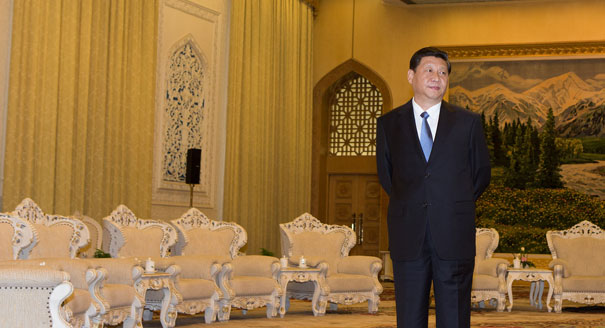Registration
You will receive an email confirming your registration.
IMGXYZ4244IMGZYXIan Bremmer, president of the Eurasia Group, described how the world has operated under the G-Zero since the 2008 economic downturn. He described the main features of the G-Zero as: a United States that endures as the only true superpower yet lacks the resources and political enthusiasm to remain the world’s primary security provider; an isolated Europe struggling with its debt crisis; and a China that still adheres to a policy of non-alignment and non-intervention. The G-Zero, Bremmer stated, could lead to an era where no single power will be invested in maintaining the global order.
The Carnegie-Tsinghua Center for Global Policy and the Young China Watchers co-hosted a lecture by Bremmer on the global dynamics of the G-Zero and its implications for global security
Understanding the G-Zero
Bremmer described the G-Zero as a new world order in which no single country, or alliance of countries, is willing or able to meet the challenges of global leadership. He elaborated on the implications of this new era for the global order and in particular, China.
- China Free-Riding: Bremmer stated that China was heavily invested in some of the world’s most unstable political environments. As China becomes wealthier, it will be forced to safeguard its own interests in these areas and provide more diplomatic and military support. China’s official policy of non-intervention, Bremmer explained, was driven by the previous structure of the global security system where the United States played a dominant role, allowing China to free ride.
- United States Steps Back: Bremmer described how the Obama administration has become increasingly domestically focused, establishing significant cut-backs in military expenditures. Bremmer questioned which country will fill the power vacuum left as the United States withdraws from Afghanistan and the Middle East. He added that China’s continuance of its non-intervention policy would only hurt China in the long term.
- Pivot State Advantage: Some countries are in a better position than others to prosper in this decentralized global order, explained Bremmer. Countries like Indonesia, Australia, Kazakhstan, and Singapore have the ability to “pivot” between different political and commercial partner countries. In the short term, Bremmer explained that this will result in resilience and domestic growth. However, these countries will eventually be pressured to align with one power or another.
Potential Areas of Conflict for China
- Korea Factor: As North Korea increasingly rejects outside interference in its internal affairs, Bremmer stated that China’s diplomatic influence with the North Korean leadership is waning. The increased instability in ROK-DPRK relations could become a flashpoint for regional conflict.
- India: Bremmer added that China-India tensions have increased over China’s strategic assistance to other countries in the region, including Pakistan, Sri Lanka, Bangladesh, and Myanmar. Referencing the recent construction of Chinese ports in Pakistan’s Gwadar and Sri Lanka’s Humbantota, Bremmer explained that New Dehli sees Beijing’s forays into the Indian Ocean and waterways as a threat.
Potential Areas for Cooperation with China
- U.S.-China Cooperation on Energy: China and the United States have mutual energy interests, Bremmer stated, and cooperation is in both countries’ favor. China currently claims the largest shale gas reserves, yet lacks the technology to extract them; meanwhile the United States has the technology and is looking for ways to lower gas and oil prices through expanding oil sources. Bremmer explained that the two countries can cooperate on providing the technology for shale gas extraction.
- China-Japan-U.S. Relationship Remains Complicated: Close U.S.-Japan relations remain a stumbling block to improving Sino-Japanese relations, added Bremmer. He explained that the Chinese have often criticized the United States for aggravating China-Japan tensions, for example with the East China Sea territorial disputes. Trilateral and bilateral relations between China, Japan, and the United States could be improved, stated Bremmer, if China considers how the U.S.-Japan relationship limits Japan’s ability to pivot to China on certain issues.
